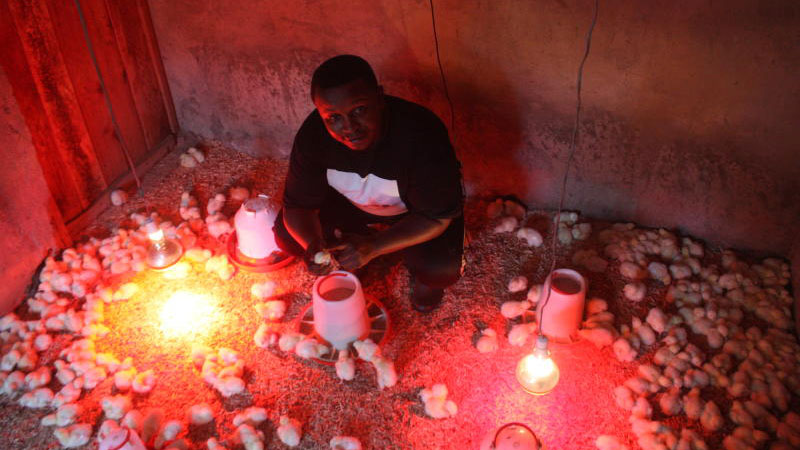×
The Standard e-Paper
Join Thousands Daily

At Unyuani village in Kangundo, hundreds of two-day-old chicks huddle at different spots in a sizeable chicken coup. They are tucked into each other, forming an appealing white mass around a large red feeder lit into sharp scarlet by a lamp hanging about a metre above.
Some are obviously making the best of an afternoon nap after helping themselves from the numerous feeders and drinkers distributed evenly in the lit room that measures about six by five metres.